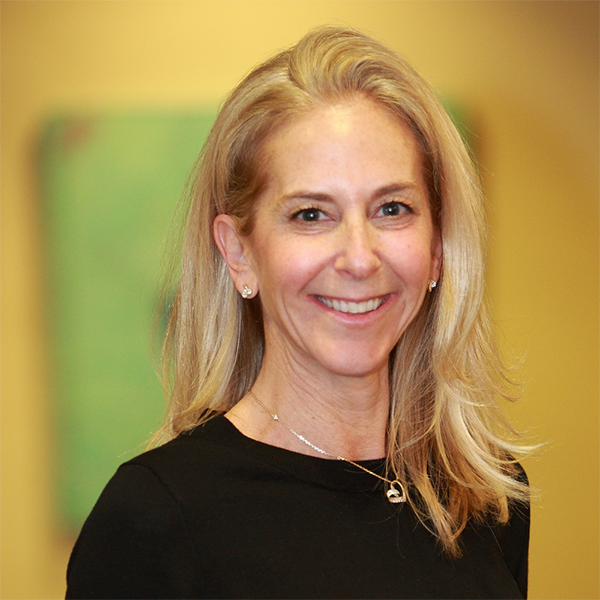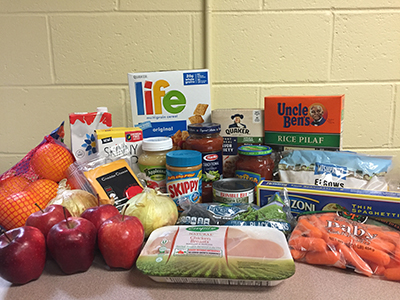Jewish Family & Children’s Service

Mobile Food Pantry distribution.
Providing Help, Hope, and Healing in a Time of Pandemic
By Laurie Pellichero| Photos courtesy of JFCS
Based in Princeton, Jewish Family & Children’s Service of Greater Mercer County (JFCS) is a nonprofit agency that serves the entire community — individuals of all backgrounds, faiths, and ages. JFCS offers a wide spectrum of social services including senior programs, mental health counseling, food pantry and food distribution services, and community and youth engagement, all of which work together to provide a broad network of support.
JFCS has been assisting individuals and families with many of life’s toughest challenges since 1937, but the COVID-19 pandemic has brought new challenges in getting people the help they need. While the agency has closed its office on Alexander Road to clients, visitors, and most staff members, JFCS has successfully continued all its major programs and has expanded its offerings as well.

Michelle Napell
The Mobile Food Pantry, which delivers nutritious food directly to Mercer County residents vulnerable to food insecurity and hunger, is a prime example of this, said Michelle Napell, executive director of JFCS. “This is still our first year on the road, and it has become the largest program due to the drastic increase in need,” she said. “We launched in January and made three stops, which served about 350 individuals, by the end of February. Then March came, and with it the COVID-19 pandemic that changed the dynamic of our community. The mobile pantry became an incredibly valuable resource as demand for food increased as well as the obstacles in getting food to those with the greatest need.”
Napell said that sourcing food for the mobile pantry, as well as the on-site pantry at JFCS headquarters, was a challenge early in the crisis. “Wegmans was a regular provider of fresh produce and goods, but, like all grocery chains, they experienced challenges meeting the demand in the late spring.”
To keep their pantry supplies stocked, Napell said the JFCS staff reached out to new vendors. “We sought out providers beyond our immediate area and built new relationships in the community,” she said.
“Community supporters have been incredible throughout the pandemic,” continued Napell. “We’ve had local groups hold food drives and make donations directly to the pantry. Princeton Christian Church donated several boxes of food, Princeton Elks Lodge has collected food and personal items, West Windsor Plainsboro Education Association has provided non-perishable items and several donations of fresh fruit, and the Beth El Synagogue Community Garden has been providing weekly donations of vegetables since early September.”
She said that they were also fortunate to be approached by Novo Nordisk, which provided six weekly donations of food through their provider, Sodexo.
The Mobile Food Pantry has now benefited more than 9,600 individuals since its launch and is making three to four stops per week. It has 27 distribution partners across Mercer County, in eight of the 12 municipalities. Distribution partners include local schools where they partner to serve Title 1 students and their families; low-income housing developments and low-income populations; senior low-income housing; and housing developments for low-income adults with disabilities.

JFCS standard pantry bag.
The on-site pantry, the Yvette Sarah Clayman Kosher Food Pantry, has served more than 1,700 individuals since March, and JFCS continues to see about twice the monthly visits (about 100) as compared to pre-pandemic.
The on-site and mobile food pantries are kept Kosher in line with the agency’s Jewish roots, but both are open to the broader community regardless of background or faith.
In addition, their Kosher Meals on Wheels program delivers 350 meals a week to seniors. Napell said they are in the second “cohort” of an expanded delivery service made possible by emergency grants provided by the Jewish Federation of Princeton Mercer Bucks.
Mental health counseling is another core service of JFCS. Their clinical team is devoted to helping “individuals of all ages in their healing journeys in coping with emotional, situational, and ongoing mental health concerns through the provision of evidence-based, compassionate therapy and support.”
The JFCS counseling department accepts clients with private insurance, Medicare, Medicaid, and uninsured individuals. The agency also provides bilingual services in Spanish.
As social distancing guidelines were rolled out in the wake of the pandemic, JFCS was able to pivot to teletherapy for counseling services. “We immediately transitioned our clients to teletherapy by phone and video call when quarantine protocols began,” said Napell. “There was no interruption to their services, and we have continued to take on new clients. Additionally, we’ve expanded the reach of our mental health department with community webinars and drop-in hours.”

Napell explained that the community webinars cover a variety of topics including parenting challenges during the pandemic, grieving the loss of a normal routine, youth coping with the loss of missed experiences, stress management skills, dealing with anxiety, and more. The webinars are provided for free and are recorded to be shared.
As for drop-in hours by phone, Napell said, “Our counseling team recognized early on that the emotional and mental toll of the pandemic would have many examining their mental health and reaching out for support. Five days a week, we have two hours of ‘drop-in’ time where any community member can connect with a counselor for a 30-minute supportive session. The counselor can provide coping skills and help the caller work through anxieties, stress, or other emotional challenges. If further counseling is needed, our counselor can make a direct referral to our intake coordinator.”
The webinars and drop-in hours are provided through the funding support from the Princeton Area Community Foundation.
JFCS also offers support groups, now held via Zoom, on a variety of topics including caregiver support, pandemic parenting, and a social support group initiated over the summer that was designed to provide socialization for older adults who were feeling increasingly isolated during COVID-19 restrictions. The counseling team is also working with local synagogues and community groups, providing support groups on broad topics such as the psychological impact of the pandemic, as well as more specific topics such as self-care.
Senior services are another big component of the offerings at JFCS.
Geriatric care managers provide regular support and services to older adults and help them age in place and connect with any additional needed services such as in-home care or transportation. While in-home visits and assessments have been halted during the pandemic, care managers have continued to provide support by phone. Senior clients who used to receive monthly check-in calls from their care managers are now contacted weekly to check in on their needs and overall health and wellness.
Since the onset of the pandemic two new services have been initiated, Friendly Phone Calls and Senior Shoppers. Both are provided at no cost.
“Our Friendly Phone Calls match a volunteer with a senior, who either requested the service or was identified by our team as in need of socialization,” said Napell. “The volunteer calls the senior once a week as a friendly check-in. The service has been well-received by our senior clients, who are facing severe isolation due to quarantine safety measures, and for volunteers, who are also benefiting from the social calls.”

Napell said that its Senior Shoppers service was critical in the early days of the quarantine when grocery delivery services and stores were overwhelmed with the demand. “Our Senior Shopper volunteers are connected with one of our elderly clients who is uncomfortable or unable to safely get to a grocery store,” said Napell. “Volunteers shop for the senior and make a contact-free delivery to their home.”
Napell noted that JFCS has also expanded its virtual program offerings for seniors. “Our longtime partner Beth El Synagogue in East Windsor held a virtual Beth El Seniors meeting where one of our care managers presented on mental well-being.”
With most of the JFCS staff now working remotely, Napell said a significant challenge since the onset of the pandemic has been trying to maintain the connection between staff. “The logistics of remote work make collaboration more difficult. Our staff regularly collaborates with employees across departments on projects and programs, and not being in one place together proved challenging,” she said. “Also, our staff, just like many others facing similar remote work obstacles and isolation, had to combat the emotional and mental toll of this new work environment.”
Napell said they quickly had most staff members set up on Zoom so they could regularly connect and “see” each other as much as possible. They hold bi-weekly staff meetings and have initiated biweekly “coffee talks” between meetings so they can come together in a less formal setting, via Zoom, and catch up with one another.
“Mental health is one of our core programs, so we were well prepared for the mental and emotional impact the ongoing quarantine and many unknowns of the pandemic would have on our team,” said Napell. “From the early days of remote work, we encouraged self-care and provided resources.”
Napell said that, from the start of the pandemic shutdowns, JFCS was successful in getting the word out about their programs. “The collaboration across community agencies has helped us all better serve those in need,” she said. “Our proactive outreach has led to new, sustaining partnerships.”
JFCS regularly updates its website and social media channels with program information, blog articles, and links to a wide range of resources.
To learn more about Jewish Family and Children’s Service of Greater Mercer County, volunteer, or make a donation, visit jfcsonline.org or call 609.987.8100.


